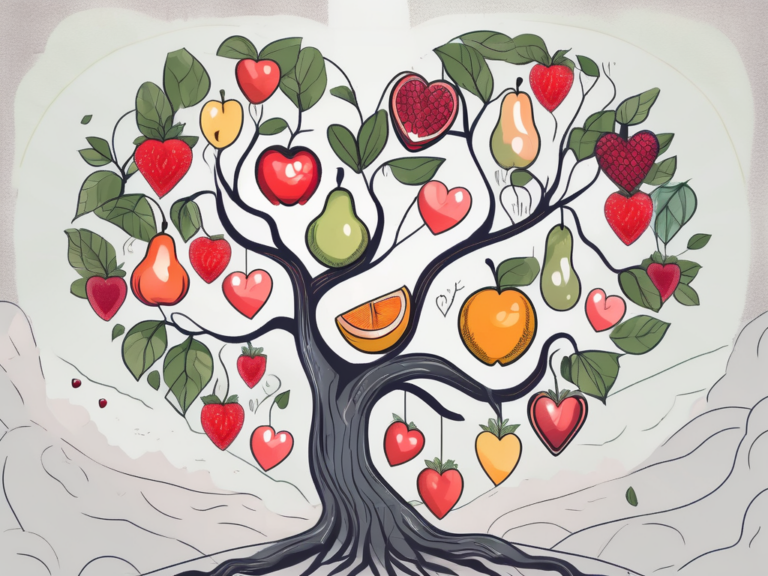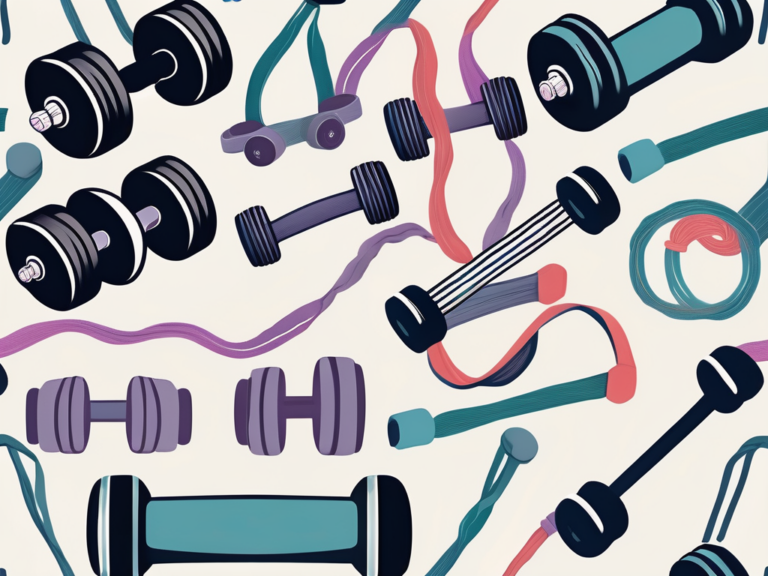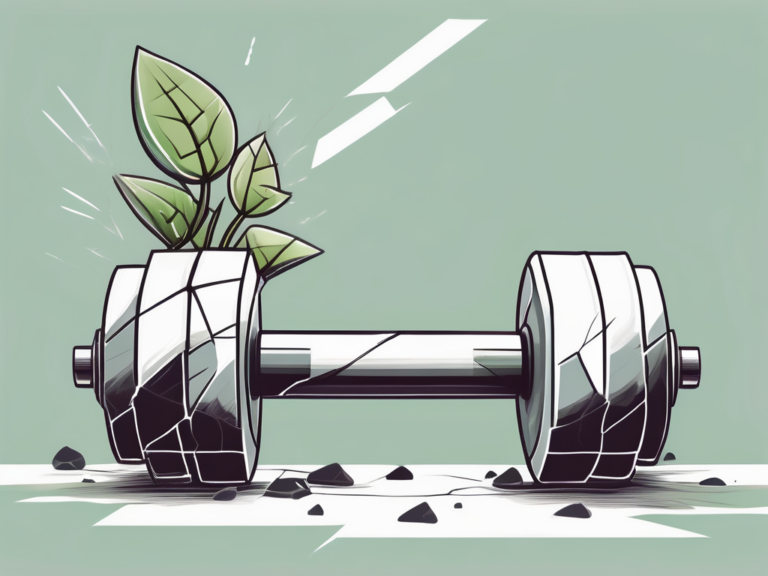Tips for a Happy Life
In today’s fast-paced and often chaotic world, finding happiness can sometimes feel like an elusive quest. But fear not! With a few simple tips and a positive mindset, you can embark on a journey towards a happier and more fulfilling life. In this article, we’ll explore various aspects of happiness, from understanding its science to cultivating a positive mindset and nurturing relationships. So, let’s dive in and discover the keys to a happy life!
Understanding Happiness
When it comes to happiness, many of us might wonder: what exactly is it? Is it just a fleeting emotion or something more profound? The science of happiness tells us that it’s a combination of both. Researchers have discovered that happiness is influenced by a variety of factors, including our genetics, life circumstances, and even our daily habits.
But perhaps the most fascinating insight comes from the connection between happiness and the vagus nerve. The vagus nerve is a complex network that connects our brain and major organs, playing a crucial role in regulating our emotions and overall well-being. By exploring how we can activate and nurture this vital nerve, we can enhance our happiness levels.
So, how exactly can we activate and nurture the vagus nerve? One method is through deep breathing exercises. Deep breathing stimulates the vagus nerve, triggering a relaxation response in our body and promoting a sense of calm and happiness. Another way is through social connections. Research has shown that positive social interactions can activate the vagus nerve, leading to increased feelings of happiness and well-being.
The Science of Happiness
Scientists have found that certain activities and habits can boost the production of neurotransmitters like serotonin and dopamine, which are associated with feelings of happiness and well-being. Engaging in regular exercise, enjoying a balanced diet, and getting enough quality sleep are just a few examples of how we can support our brain’s chemistry for happiness.
In addition to these activities, practicing gratitude has also been shown to have a significant impact on happiness. Taking the time to reflect on the things we are grateful for can activate the reward centers in our brain, releasing dopamine and creating a positive feedback loop of happiness. So, keeping a gratitude journal or simply expressing gratitude to others can be powerful tools in cultivating happiness.
Defining Personal Happiness
While the science gives us valuable insights, personal happiness is a subjective experience that varies from person to person. What brings joy and fulfillment to one individual may not resonate with another. It’s essential to define what happiness means to you personally and align your actions and goals accordingly.
For some, personal happiness may be found in pursuing meaningful relationships and connections with others. For others, it may be in pursuing a passion or a creative outlet. Understanding what truly brings you joy and fulfillment can guide you towards a life that is aligned with your personal values and aspirations.
Cultivating a Positive Mindset
One key aspect of happiness lies in cultivating a positive mindset. Our thoughts and perceptions shape our reality, so why not choose to see the world through a positive lens? By practicing optimism and gratitude, we can change our mindset and invite more happiness into our lives.
It’s important to recognize that cultivating a positive mindset is not about ignoring challenges or pretending everything is perfect. Instead, it’s about approaching life with a sense of hope and resilience. When we face obstacles with optimism, we are better equipped to find creative solutions and learn valuable lessons along the way.
The Power of Optimism
Optimism is a powerful mindset that enables us to view challenges as opportunities for growth. When we approach life with optimism, we develop a can-do attitude that propels us forward, even in the face of adversity. By focusing on the positive aspects of any situation, we train our minds to see the silver linings and cultivate happiness.
Research has shown that optimistic individuals tend to experience lower levels of stress and anxiety, leading to improved overall well-being. By adopting an optimistic outlook, we not only enhance our mental health but also inspire those around us to adopt a similar positive mindset.
Embracing Gratitude
Gratitude is another invaluable tool in our happiness arsenal. When we practice gratitude, we shift our focus from what’s lacking to what we already have. By regularly expressing appreciation for the blessings in our lives, we cultivate a sense of contentment and deepen our connection to the present moment.
Cultivating a practice of gratitude can also improve our relationships with others. When we express gratitude towards those who have positively impacted our lives, we strengthen our bonds and create a ripple effect of positivity. Additionally, focusing on gratitude can help us navigate challenging times with more resilience and perspective, reminding us of the abundance that surrounds us even in difficult moments.
Building Strong Relationships
Human beings are social creatures, and nurturing deep connections with others is essential for our well-being. Strong relationships provide us with a sense of belonging, support, and joy. So, let’s explore the importance of communication and how to cultivate meaningful connections.
When we think about building strong relationships, it’s important to consider the role of trust. Trust forms the foundation of any meaningful connection, allowing individuals to feel secure and valued in their interactions. Trust is built over time through consistent actions, honesty, and reliability. It is the glue that holds relationships together during challenging times and enhances the overall bond between individuals.
The Importance of Communication
Effective communication is the cornerstone of any healthy relationship. By actively listening, expressing our thoughts and feelings honestly, and practicing empathy, we can foster understanding and strengthen our connections with others.
Moreover, communication goes beyond verbal interactions. Non-verbal cues such as body language, facial expressions, and tone of voice play a significant role in conveying emotions and building rapport with others. Being mindful of these non-verbal signals can help us better understand the underlying feelings and perspectives of our loved ones, leading to deeper, more meaningful connections.
Nurturing Your Relationships
Building strong relationships requires time, effort, and care. It’s essential to prioritize quality time with loved ones, engage in activities together, and show appreciation for one another. By investing in our relationships, we create a solid support system and enhance our overall happiness.
In addition to spending time together, it’s crucial to communicate openly about expectations, boundaries, and needs within the relationship. Setting clear boundaries and respecting each other’s individuality fosters a sense of mutual respect and understanding. This open dialogue allows for growth both as individuals and as partners, strengthening the foundation of the relationship for the long term.
Pursuing Personal Growth
Personal growth is a vital aspect of a happy life. It allows us to expand our knowledge, skills, and passions, leading to a sense of fulfillment and purpose. Let’s explore how lifelong learning and goal-setting can contribute to our happiness.
Embarking on a journey of personal growth not only enhances our individual well-being but also positively impacts our relationships and communities. As we strive to better ourselves, we become more empathetic, understanding, and compassionate towards others. This ripple effect of personal growth can create a more harmonious and supportive environment for everyone around us.
Lifelong Learning for Happiness
Learning doesn’t end with formal education. Engaging in lifelong learning opens doors to new opportunities, broadens our perspectives, and cultivates a sense of curiosity. From taking online courses to pursuing hobbies, there are countless ways to embark on a journey of continuous growth for increased happiness.
Furthermore, lifelong learning not only enriches our minds but also strengthens our cognitive abilities and memory. Research has shown that challenging our brains through new learning experiences can help stave off cognitive decline and improve overall brain health. By prioritizing lifelong learning, we invest in our mental well-being and set the stage for a fulfilling and vibrant life.
Setting and Achieving Goals
Goals provide us with a sense of direction and motivation. By setting realistic goals that align with our values and passions, we create a roadmap for success and personal satisfaction. Celebrating each milestone along the way allows us to experience a sense of accomplishment and joy.
Moreover, the process of setting and achieving goals fosters resilience and perseverance. As we encounter obstacles and setbacks on our journey, we develop valuable skills in problem-solving and adaptability. These skills not only help us overcome challenges in pursuit of our goals but also equip us to navigate the complexities of life with confidence and determination.
Maintaining Physical Health
Our physical health greatly impacts our emotional well-being. By taking care of our bodies, we lay a strong foundation for happiness. Let’s explore the connection between exercise, nutrition, and mood regulation.
Physical health is not just about the absence of illness but also about the presence of overall well-being. It encompasses a holistic approach that includes not only physical fitness but also mental and emotional wellness. When we prioritize our physical health, we are investing in a better quality of life and a more positive outlook.
Exercise and Happiness
Regular exercise not only helps us stay physically fit but also has a profound impact on our mental well-being. Engaging in physical activity releases endorphins, the body’s natural “feel-good” chemicals, which can elevate our mood and reduce stress. Find an exercise routine that brings you joy and make it a part of your daily life.
Exercise is not just a means to achieve a certain body shape; it is a way to connect with our bodies and improve our mental resilience. Whether it’s a brisk walk in nature, a challenging yoga session, or a high-intensity workout, moving our bodies can be a form of self-care that enhances our overall well-being.
The Role of Nutrition in Mood Regulation
What we put into our bodies can significantly influence our emotions and mental clarity. A balanced diet rich in nutrient-dense foods nourishes both our bodies and minds, providing us with the energy and nutrients we need for optimal happiness and well-being. Prioritize whole foods, fruits, vegetables, and healthy fats to support your mental health.
Food is not just fuel for our bodies; it is information that can impact our mood, cognition, and overall mental health. By choosing foods that are rich in vitamins, minerals, and antioxidants, we are giving our brains the essential building blocks for neurotransmitters that regulate our mood and emotions. Eating mindfully and with intention can be a powerful way to nourish both our bodies and minds.
Practicing Mindfulness and Relaxation
In our fast-paced world, it’s crucial to carve out time for mindfulness and relaxation. These practices help us slow down, become present in the moment, and reduce stress. Let’s explore the benefits of meditation and the art of living in the moment.
When we talk about mindfulness, we are referring to the act of being fully present and engaged in the current moment, without judgment. This practice involves paying attention to our thoughts, feelings, bodily sensations, and the surrounding environment. By being mindful, we can better understand ourselves, our reactions, and the world around us. It allows us to respond to situations with clarity and focus, rather than reacting impulsively based on past experiences or future worries.
The Benefits of Meditation
Meditation is a powerful tool for calming the mind and reducing stress. By regularly practicing meditation, we cultivate a state of mindfulness that allows us to observe our thoughts without judgment and find inner peace. Whether it’s through guided meditation, deep breathing exercises, or simply taking a few moments to quiet our minds, incorporating mindfulness into our daily lives can greatly enhance our overall happiness.
Research has shown that meditation can have numerous benefits for both our mental and physical well-being. It can help reduce symptoms of anxiety and depression, improve concentration and focus, boost creativity, and even strengthen the immune system. The practice of meditation is not about emptying the mind of thoughts but rather about acknowledging them and letting them pass without attachment.
The Art of Living in the Moment
In our fast-paced lives, it’s easy to get caught up in past regrets or future anxieties. However, true happiness lies in embracing the present moment. By consciously savoring the small pleasures, finding beauty in ordinary moments, and letting go of the need for constant future planning, we can cultivate a deep sense of contentment and joy.
Living in the moment is about appreciating the simple things in life, such as the warmth of the sun on your skin, the sound of birds chirping, or the taste of a delicious meal. It’s about fully immersing yourself in whatever you are doing, whether it’s having a conversation with a friend, taking a walk in nature, or enjoying a hobby. When we focus on the present moment, we can let go of worries about the past or future, allowing ourselves to experience true peace and happiness.
Balancing Work and Leisure
In our pursuit of happiness, finding the right balance between work and leisure is crucial. Let’s explore how finding fulfillment in our careers and embracing downtime and recreation can contribute to our overall well-being.
Finding Fulfillment in Your Career
Our careers play a significant role in our lives, and finding fulfillment in our work is essential for long-term happiness. By aligning our passions and values with our professional pursuits, we can find purpose and joy in our careers. Additionally, cultivating a positive work environment, maintaining work-life balance, and seeking growth opportunities can greatly enhance our overall satisfaction.
The Importance of Downtime and Recreation
While work is important, so is taking time for ourselves and engaging in activities we enjoy. Downtime and recreation allow us to recharge, unwind, and pursue our hobbies and passions. Whether it’s spending time in nature, pursuing creative outlets, or simply relaxing with a good book or movie, taking regular breaks from the demands of daily life can contribute to a happier and more balanced existence.
Giving Back to the Community
Finally, a key aspect of a happy life lies in giving back to our community. By helping others and engaging in social responsibility, we not only contribute to the well-being of others but also experience a profound sense of joy and purpose.
The Joy of Helping Others
Acts of kindness, big or small, have a ripple effect that goes beyond the immediate impact. Helping others not only improves their lives but also boosts our own happiness and well-being. Whether it’s volunteering, donating to a cause you care about, or simply being there for a friend in need, acts of kindness connect us to something greater and fulfill our innate desire to make a positive difference.
The Impact of Social Responsibility on Happiness
Social responsibility involves being aware of our impact on the world and taking actions that benefit society as a whole. By aligning our actions with our values and making conscious choices that prioritize the well-being of others and the planet, we experience a sense of purpose and fulfillment. Engaging in practices like recycling, reducing waste, and supporting sustainable initiatives can contribute to our overall happiness.
Conclusion
In our pursuit of a happy life, we must remember that happiness is not a destination but a journey. By understanding the science behind happiness, nurturing our minds and bodies, fostering strong relationships, pursuing personal growth, and engaging in acts of kindness, we can create a life filled with joy, purpose, and contentment. So, embrace these tips, embark on this journey, and savor the abundant happiness that awaits you!






